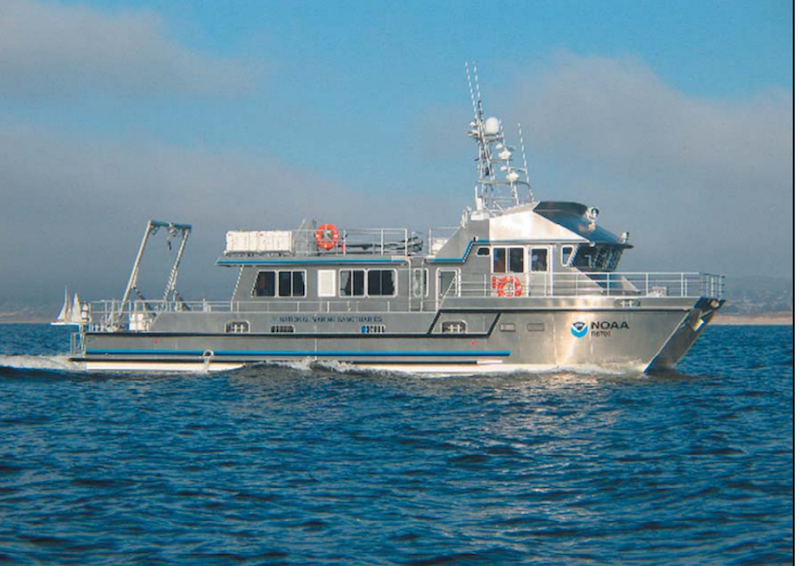Duke University announced today that it has received $11 million for the construction and operation of a new state-of-the-art research vessel that will expand teaching and research capabilities at its marine lab.
The gift to the Nicholas School of the Environment comes from the Grainger Family Descendants Fund, a donor-advised fund at The Chicago Community Trust. It provides $5 million to build the new 68' oceangoing research vessel and $6 million to support operating costs.
The vessel will have wet labs and dry labs, oceanographic equipment, a galley and sleeping quarters. It will be an oceangoing classroom to train undergraduate and graduate students in oceanography and marine biology at the Duke Marine Lab at Beaufort, N.C. It will also be used to support science outreach programs for local K-12 teachers, students and community members. Researchers and instructors from other institutions will also be able to charter the vessel for scientific or educational purposes.
“This is a huge boost for the Duke Marine Lab,” said Jeffrey Vincent, Stanback Dean of the Nicholas School. “We’re delighted that our benefactor shares our commitment to the lab’s vital educational, research and science outreach missions.”
The marine lab has been without a large research vessel since two of its boats were retired — the 135' Cape Hatteras in 2013 and the 50' Susan Hudson in 2014. Faculty members have since been unable to regularly take students offshore or participate in oceanographic work.
“Our small vessel, the Richard Barber, is a great platform for daylong research trips, but is not able to support overnight operations,” said Andrew Read, the marine lab’s director and Stephen A. Toth Professor of Marine Biology. “The new boat will be able to operate in waters up to 100 nautical miles from shore and stay at sea for days at a time. We’re very excited by the prospect.”
The vessel will allow researchers and other institutions to conduct research along the Atlantic seaboard in a wide range of vital fields, including marine ecology and conservation, biological oceanography, and renewable ocean energy development.
Design and construction is expected to take about two years. A shipyard has not been selected. Two full-time crew members and a part-time crew member will be employed in Beaufort to staff the boat.
The Duke Marine Lab is a year-round teaching and research campus located on Pivers Island in Beaufort. It offers academic programs at the doctoral, masters and undergraduate levels, and is home to the Nicholas School’s Marine Science and Conservation Division.





